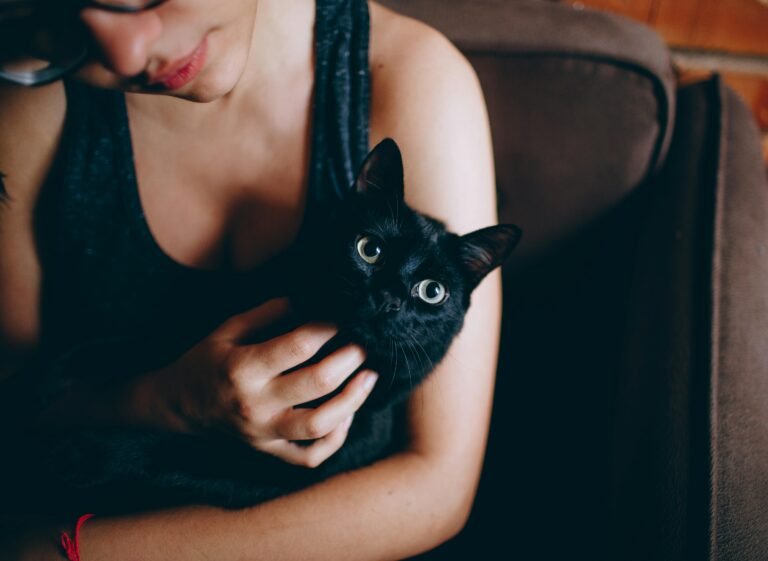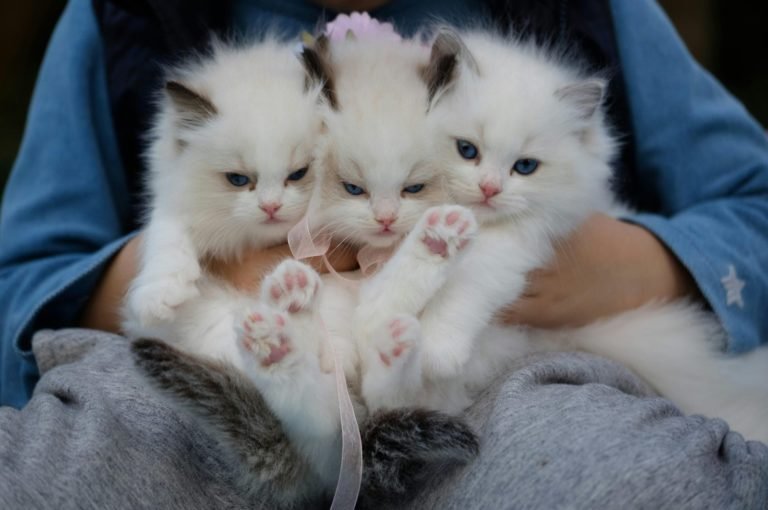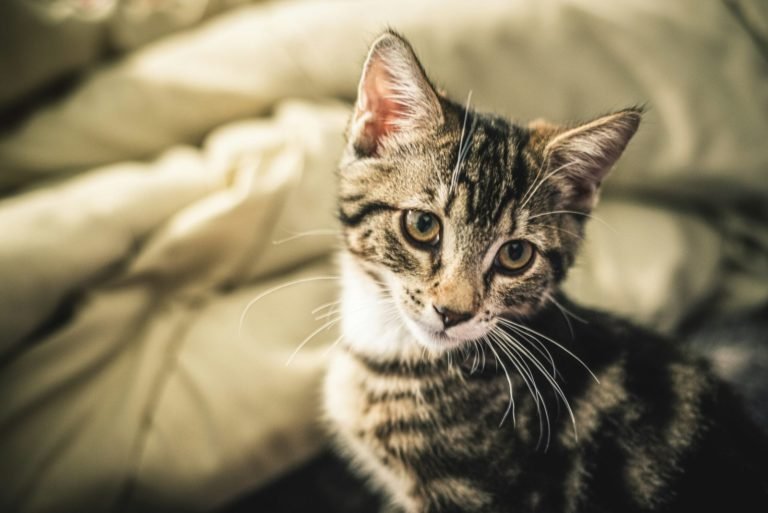As our feline friends age, they undergo subtle changes that signal the onset of senior cathood. Just like humans, cats experience a gradual decline in physical and mental abilities. Paying close attention to these signs is crucial for providing optimal senior cat care.
A common indicator of aging in cats is a decrease in activity levels. Once energetic and playful, your senior cat might prefer to spend more time napping or resting. Changes in appearance are also common, such as graying fur, dull coat, or weight fluctuations. Additionally, behavioral shifts, like increased vocalization or changes in litter box habits, could be early warning signs of underlying health issues.
Common age-related conditions in cats include arthritis, kidney disease, and hyperthyroidism. Arthritis often manifests as stiffness, difficulty jumping, or reduced grooming. Kidney disease can lead to increased thirst, urination, and weight loss. Hyperthyroidism, on the other hand, can cause hyperactivity, weight loss, and increased appetite. While these conditions can be managed with proper senior cat care, early detection is key.
The Importance of Regular Vet Checkups for Senior Cats
Just as regular checkups are essential for our health, they are equally important for our feline companions, especially as they age. Routine veterinary visits allow for early detection of potential health problems, such as senior cat health issues. Your vet can recommend preventive care measures tailored to your cat’s specific needs.
Creating a comprehensive senior cat care plan is crucial for maintaining your cat’s quality of life. This plan should include regular checkups, vaccinations, dental care, and appropriate nutrition. By working closely with your veterinarian, you can address any concerns and provide the best possible care for your aging companion.
Creating a Senior-Friendly Home Environment
As your cat ages, their needs change. Creating a senior-friendly home environment can significantly improve their comfort and well-being. Ensuring easy access to food, water, and litter boxes is essential for elderly cats with limited mobility. Placing these essentials on lower levels or using ramps can make a big difference.
Providing comfortable bedding and resting areas is another important aspect of senior cat care. Choose soft, supportive beds and place them in quiet, draft-free locations. Creating a calm and stress-free atmosphere is crucial for reducing anxiety in senior cats. Consider providing hiding spots or using calming pheromone diffusers to create a soothing environment.
By making these adjustments to your home, you can help your senior cat age gracefully and comfortably.
Nutrition for Senior Cats
Tailoring Nutrition for Senior Cats
Just as our dietary needs change as we age, so do our feline companions’. Providing the right nutrition is essential for maintaining senior cat health. As cats enter their golden years, their caloric requirements may decrease. Overfeeding can lead to weight gain, which can exacerbate existing health conditions like arthritis.
A balanced diet rich in protein is crucial for senior cats. Protein helps preserve muscle mass and supports overall health. Essential nutrients like vitamins and minerals are also vital for maintaining their immune system and organ function. However, it’s important to consult with your veterinarian to determine the specific nutritional needs of your senior cat.
Hydration is another critical aspect of senior cat care. Kidney function declines with age, making it essential to keep your cat well-hydrated. Encourage water intake by providing fresh water in multiple locations and considering water fountains. Some senior cats may benefit from wet food, as it contains a higher moisture content.
Choosing the Best Food for Your Senior Cat
Selecting the right food for your senior cat is crucial for their well-being. There are various senior cat food options available, each with its own benefits. These foods are formulated to meet the specific nutritional needs of aging cats.
The decision between wet and dry food often comes down to personal preference and your cat’s individual needs. While wet food generally contains more moisture, dry food helps maintain dental health. Some senior cats may benefit from a combination of both.
Treats and supplements can be a part of your senior cat’s diet, but they should be given in moderation. Some supplements may support joint health, digestion, or cognitive function. However, it’s essential to consult with your veterinarian before introducing any new supplements.
Feeding Tips for Senior Cat Care
To ensure optimal nutrition for your senior cat, consider implementing these feeding tips. Small, frequent meals can help regulate blood sugar levels and prevent digestive upset. For cats with dental issues, soft or wet food may be easier to eat.
Monitoring your senior cat’s weight is crucial. Obesity can exacerbate existing health problems. If you notice weight loss or gain, consult your veterinarian to rule out any underlying medical conditions.
Providing a clean and fresh water source is essential for senior cat health. Encourage water intake by using interactive water fountains or adding a splash of tuna juice to the water.
Senior Cat Health and Wellness
Common Health Challenges in Senior Cats
As cats age, they become more susceptible to various health issues. Understanding common health problems in senior cats can help you identify potential concerns early on. Arthritis is a prevalent condition in elderly cats, causing stiffness, pain, and reduced mobility. Regular veterinary checkups and appropriate pain management can help alleviate discomfort.
Dental problems are another common issue in senior cats. Poor oral hygiene can lead to tooth loss, gum disease, and even systemic infections. Regular dental care, including brushing and professional cleanings, is essential for maintaining your cat’s oral health.
Urinary tract issues, such as urinary tract infections (UTIs) and kidney disease, are more common in senior cats. Symptoms may include increased urination, blood in urine, or changes in litter box habits. If you notice any changes, consult your veterinarian promptly.
Kidney disease is a progressive condition that affects many senior cats. Early detection and management are crucial for slowing disease progression. Symptoms may include increased thirst, urination, and weight loss.
Hyperthyroidism, an overactive thyroid gland, is another common health problem in older cats. Symptoms include weight loss, increased appetite, hyperactivity, and vomiting. Regular veterinary checkups and blood tests can help diagnose and manage this condition.
Pain Management and Comfort for Senior Cats
Recognizing signs of pain in senior cats can be challenging, as they often hide discomfort. Changes in behaviour, such as decreased activity, irritability, or difficulty grooming, may indicate pain. Regular veterinary examinations and open communication with your vet can help identify and manage pain effectively.
Treatment options for senior cat pain include medication, physical therapy, and environmental modifications. Your veterinarian can recommend the most appropriate pain management plan based on your cat’s specific needs. Creating a comfortable environment with soft bedding, easy access to food and water, and reduced stress can also help alleviate discomfort.
Exercise and Mental Stimulation for Senior Cats
While physical activity may decrease with age, it’s still essential for maintaining senior cat health. Low-impact exercises like gentle play sessions and interactive toys can help prevent muscle atrophy and stiffness. Joint supplements may also support mobility.
Mental stimulation is equally important for senior cats. Puzzles, interactive toys, and window perches can help keep their minds sharp and prevent boredom. Even simple activities like brushing or grooming can provide mental stimulation.
Grooming and Hygiene for Senior Cats
Regular grooming is essential for maintaining senior cat health and preventing matting. As cats age, they may be less able to groom themselves effectively. Gentle brushing can help remove loose hair and distribute natural oils.
Nail trimming and ear cleaning are also important aspects of senior cat care. Regular nail trims prevent discomfort and accidental scratches. Keeping ears clean can help prevent infections.
Dental care is crucial for preventing oral health problems. Brushing your cat’s teeth regularly, along with professional cleanings, can help maintain good oral hygiene.
Medication and Supplements for Senior Cats
Many senior cats require medication to manage chronic conditions. Common medications include pain relievers, anti-inflammatory drugs, and thyroid medications. It’s essential to administer medications as prescribed by your veterinarian and monitor your cat for any side effects.
Supplements can be beneficial for supporting overall health and addressing specific needs. Joint supplements, for example, can help manage arthritis pain. However, it’s important to consult with your veterinarian before giving your cat any supplements.
Senior Cat Behaviour and Enrichment
Understanding Behavioral Changes in Senior Cats
As cats age, their routines and behaviors naturally shift. While increased sleep and decreased activity are common, it’s important to distinguish normal aging from potential health issues. Changes in litter box habits, such as increased frequency, accidents outside the box, or straining, can signal urinary tract problems or discomfort. Similarly, excessive vocalization might indicate pain, anxiety, or cognitive decline.
Cognitive dysfunction syndrome (CDS) is a condition that affects older cats, similar to Alzheimer’s disease in humans. Symptoms include disorientation, confusion, and changes in behavior. Creating a consistent and calming environment can help cats with CDS feel more secure.
Creating a Stimulating Environment for Senior Cats
Enriching your senior cat’s environment is crucial for their overall well-being. While physical activity may decline, mental stimulation remains vital. Interactive toys, puzzle feeders, and vertical spaces can provide opportunities for exercise and mental engagement. Even simple activities like brushing or grooming can offer sensory stimulation and bonding time.
Consider creating dedicated quiet spaces for your senior cat to retreat when they need rest. Providing soft, comfortable bedding and easy access to food, water, and litter boxes can enhance their comfort and independence.
Coping with Loss and Grief for Senior Cats
Losing a beloved pet is a difficult experience for any pet owner. When a senior cat passes away, their surviving feline companions may exhibit signs of grief, such as decreased appetite, changes in sleep patterns, or increased vocalisation.
To support your grieving cat, maintain their routine as much as possible. Offer extra affection and playtime. Consider introducing new toys or creating a dedicated play area to provide distraction and stimulation. If the grief seems excessive or prolonged, consulting with a veterinarian or animal behaviourist can provide guidance and support.
Creating a memorial for your departed cat can be a helpful way to process your own grief and provide comfort for surviving pets. A photo album, a special place in your home, or planting a memorial garden can serve as a tribute to your beloved companion.
Conclusion
Caring for a senior cat is a rewarding yet demanding journey. It requires a deep understanding of their evolving needs, from physical changes to behavioural shifts. By implementing the strategies outlined in this guide, you can significantly enhance your ageing feline companion’s quality of life.
Remember, every cat is unique, and their aging process may vary. Regular veterinary check-ups remain crucial for monitoring their health and addressing any emerging concerns. Building a strong partnership with your veterinarian is essential for providing optimal care.
With patience, love, and a proactive approach, you can create a nurturing environment where your senior cat can thrive and enjoy their golden years. By providing the necessary care, comfort, and companionship, you’ll strengthen your bond and create lasting memories together.
FAQ
What are the first signs of aging in cats?
Early signs of ageing in cats may include decreased activity levels, changes in appetite, weight fluctuations, and increased sleeping. Subtle changes in behaviour, such as increased vocalisation or changes in litter box habits, can also be indicators. Regular veterinary checkups are essential for early detection of age-related health issues.
How often should I take my senior cat to the vet?
It’s recommended to visit your veterinarian at least once a year for senior cats. However, more frequent checkups may be necessary if your cat has underlying health conditions. Regular examinations help monitor your cat’s overall health, detect early signs of disease, and provide appropriate care.
What is the best diet for a senior cat?
The best diet for a senior cat depends on their specific needs and health conditions. A diet rich in protein and essential nutrients is generally recommended. Consulting with your veterinarian will help determine the most suitable food for your cat’s age and health.
How can I help my senior cat with arthritis?
To help your senior cat with arthritis, provide comfortable bedding, easy access to food and water, and avoid stairs if possible. You can also consult your veterinarian about pain management options, such as medication or supplements. Regular low-impact exercise and gentle massage can help improve mobility and reduce stiffness.
What can I do to keep my senior cat mentally stimulated?
Mental stimulation is crucial for senior cats. Interactive toys, puzzle feeders, and playtime can help keep their minds sharp. Providing opportunities for window watching and creating a stimulating environment can also contribute to their cognitive well-being.









